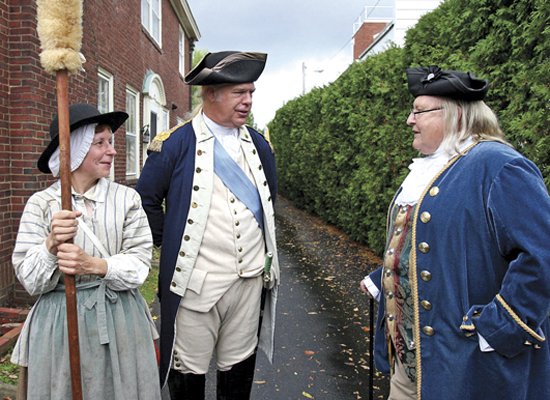By Richard Pender
Special to Newspaper Media Group
Our annual holiday season begins with the arrival of Santa Claus in the Thanksgiving Day Parade. This cold weather season of feasting, parties and shopping overshadows days and events of historical significance that occurred during this season in years past.
The Thanksgiving holiday in 1950 brought the mass intervention of the Chinese volunteer forces from across the Yalu River into a frozen North Korea on Nov. 26.
Aircraft of the Japanese Naval forces attacked the American fleet at Pearl Harbor, Hawaii, on Dec. 7, 1941.
As Allied forces pushed toward Germany from the west and the Russians advanced from the east, the Germans marshaled all the equipment and manpower they had for a counter attack through the Ardennes in hopes of capturing the port of Antwerp, Belgium and the Allied fuel supplies. This attack began on Dec. 16, 1944, under misty and overcast skies in the coldest winter seen in Europe in years.
On Christmas night 1776, General George Washington and his troops crossed the Delaware River and marched on Trenton to attack the Hessian soldiers hired by England and quartered there.
In each of the above-mentioned scenes, American resolve and tenacity is the thread that ties them all together. The embattled troops in Europe, Korea and Trenton had the additional challenge of extreme weather conditions to fight besides the enemy.
Many of Washington’s Colonials had rags wrapped around their feet as they marched in freezing weather to Trenton. “Frozen ChosIn” was appropriately named as the Manchurian Express blew Artic cold of temperatures of 35 degrees below zero Farenheit on our troops. Deep snow and abnormally low temperatures blanketed our troops on the western front in Europe as the Germans began their attack through the Ardennes.
The Chinese encirclement of the U.S. Marines and the U.S. Army X Corps at the Chosin Reservoir was made possible by those hidden enemy forces that came out of the mountainous cover to the south thus surrounding U.N. Forces. U.S. Eighth Army units along the Yalu River were similarly surrounded. Bitter fighting followed as American and U.N. units sought to break the encirclement. Both groups were eventually successful and in a running battle Eighth Army advanced to the rear towards the 38th parallel. The U.S. Marines and X Corps also had a running battle with Chinese forces as they took the road east to Hungnam. The U.S. Navy assembled one of the largest evacuation armadas in history at the port of Hungnam as they met the evacuating forces. All men and equipment were loaded on ships, which quickly put to sea. The last ship to leave on Dec. 24 was a liberty ship with 15,000 refugees.
On Dec. 26, 1944, tanks of General George Patton’s Third Army broke through the German perimeter surrounding Bastogne, relieving the pressure on the surrounded 101st Airborne Division. In the meantime, Allied aircraft and artillery decimated the German armored assault and turned it into the world’s largest junkyard.
Washington’s surprise attack on Trenton the night of Dec. 25, 1776, became a victory on Dec. 26. After a series of losses and retreats, the Colonial Army now began to gain some stature and support. The rest is history.
To call our soldiers who served in these events gallant or heroic would be an understatement. A word has not yet been coined to fit these deeds. They saw it as ordinary men doing their job during the holiday season. Some Spectacular Holiday Seasons.
Richard Pender is the senior vice commander of American Legion Post 459 in North Brunswick.

